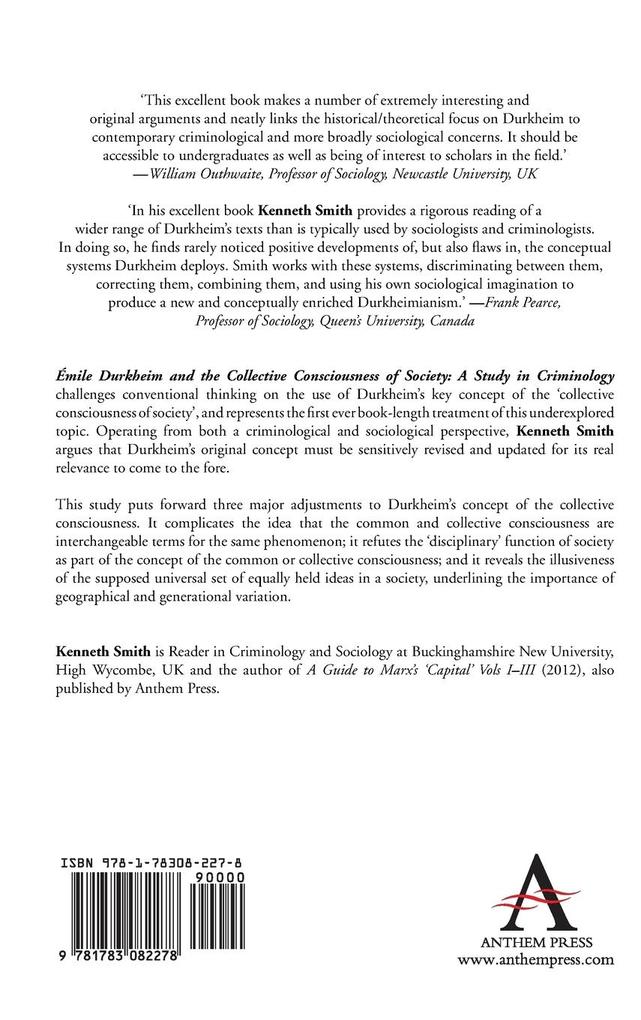
Zustellung: Do, 19.06. - Di, 24.06.
Versand in 1-2 Wochen
VersandkostenfreiBestellen & in Filiale abholen:
This volume presents the first ever book-length treatment of Émile Durkheim's concept of the 'collective consciousness of society'.
Inhaltsverzeichnis
Preface: Erewhon; Introduction; Part I: The Concept of the Collective Consciousness of Society; 1. Durkheim on the Collective Consciousness in 'Moral Education'; 2. Durkheim's Other Writings on the Concept of the Collective Consciousness; 3. Collective Consciousness, Common Consciousness, Collective Conscience or Conscience Collective?; Part II: The Form of the Collective Consciousness; 4. The Form that the Collective Consciousness(es) of Society Takes in a Late-Industrial Society: I. Macro-sociological or 'General' Characteristics; 5. The State as the 'Organ' of the Common Consciousness; 6. 'The Rule-of-Law': A Case Study; 7. The Form that the Collective Consciousness Takes in Early Twenty-First Century Britain: II. Micro-sociological, Individual or Small-Scale Factors; Part III: Durkheim on Crime and Punishment; 8. Durkheim on Crime and Punishment in 'The Division of Labour in Society'; 9. Durkheim on Crime and Punishment in 'The Rules of Sociological Method'; 10. Interregnum on 'Suicide' (1897); 11. Durkheim's Undeservedly Famous 'Two Laws of Penal Evolution' Essay (1901); 12. Durkheim on Crime and Punishment in 'Moral Education' (1902-03); Part IV: Social Factor Social Phenomenon? Durkheim's Concept of the Collective Consciousness as a 'Social Fact'; 13. What Does Durkheim Mean by the Concept of the 'Social' and What Does He Mean by the Concept of a 'Fact'?; 14. Social Facts or Social Phenomena?; 15. Social Facts and Sociology; 16. Social Facts as Living Things; Part V: Some Problems with Durkheim's Concept of the Common and Collective Consciousness; 17. Interdependence and the Division of Labour in Society; 18. Durkheim on Socialism; 19. Professional Ethics; 20. Individualism, Durkheim and the Dreyfus Affair; Conclusion; Appendix: On Paying a Debt to Society; Notes; References; Index
Mehr aus dieser Reihe
Produktdetails
Erscheinungsdatum
01. August 2014
Sprache
englisch
Seitenanzahl
278
Reihe
Key Issues in Modern Sociology, 1
Autor/Autorin
Kenneth Smith
Verlag/Hersteller
Produktart
gebunden
Gewicht
606 g
Größe (L/B/H)
235/157/21 mm
ISBN
9781783082278
Entdecken Sie mehr
Bewertungen
0 Bewertungen
Es wurden noch keine Bewertungen abgegeben. Schreiben Sie die erste Bewertung zu "Émile Durkheim and the Collective Consciousness of Society" und helfen Sie damit anderen bei der Kaufentscheidung.































